Business
Keynote Delivered by Dr. Akinwumi A. Adesina, President and Chairman of the Boards of Directors, African Development Bank Group, Chatham House, 7 June 2024, London
Good afternoon, everyone!
I wish to thank the Chatham House for inviting me to speak today. It is great to be back here, in this globally renowned ideation house, where contemporary issues are debated and discussed.
Ladies and gentlemen,
My last time here was when I was campaigning for the presidency of the African Development Bank in 2015.
A lot has happened since then: I was elected in 2015 and re-elected for a second term in 2020, with 100% of the votes of all 81 shareholder countries, African and non African.
It is equally auspicious that I am speaking with you few days after the Annual
Meetings of the African Development Bank Group, held last week in Nairobi, Kenya. There, our shareholders unanimously approved an additional $117 billion increase in the capital of the African Development Bank.
This follows the earlier general capital increase which raised the capital of the African Development Bank from $93 billion to $201 billion in 2019.
The new capital injection last week brings the capital of the African Development Bank to $318 billion.
We will be bigger, bolder and better.
The historic increase in our financial capacity shows the confidence of the shareholders in African Development Bank’s vision for Africa, and our resolve and commitment to accelerate its growth and development.
They did so because our High 5s priority programs (Light Up and Power Africa; Feed Africa; Industrialize Africa; Integrate Africa; and improve the quality of life of the people of Africa) have already impacted on over 400 million people in the last eight years.
The newly injected capital will allow us to do more.
It is therefore, with excitement of the wind in the sails of the African Development Bank, that I am delighted to speak to you today on “Envisioning Africa’s Economic Prospects”.
Ladies and gentlemen,
The New York Times recently had as its headlines: the future is African.
I agree with New York Times. Africa can no longer be ignored. I fully expect Africa to be the pivotal continent in the world, given its economic prospects.
First, Africa’s population is projected to reach 2.5 billion by 2050 and by then one of four persons on earth will be African. With a rising middle class and projected consumer and business expenditures to reach $7 trillion, this is a formidable market of the future.
Second, with its burgeoning young population of almost a billion people under the age of 35, Africa will boom with talented skills and form the workforce for the world.
Third, with 65% of the uncultivated arable land left on earth being in Africa, what Africa does with its agriculture will determine the future of food in the world to feed the global population of 9.7 billion by 2050.
Fourth, the future of energy transition, for a world powered largely with renewable energy, will depend on Africa. Africa has the largest solar potential in the world, which will be critical for developing green hydrogen and green ammonia that will power green economies of the world towards net zero emissions. Africa also has the largest deposits of green minerals and metals, from platinum, copper, nickel, manganese, chromium, graphite and lithium, that are critical for the manufacturing of solar panels, battery energy storage systems and electric vehicles, a market estimated to rise to $57 trillion by 2050.
Fifth, the African continental free trade area, which brings together all the 54 countries in Africa, with an estimated GDP of $3.4 trillion, is on its way to becoming the largest free-trade zone in the world.
Therefore, economic trends, growth and development of Africa are central as we look to a world where the continent will play a significant role.
Ladies and gentlemen,
Despite challenges of the Covid pandemic, geopolitical risks, high food and energy prices, and rising global interest rates, African countries are showing economic resilience. Africa’s real GDP growth increased from 3.1% in 2022 to 3.7% in 2023 and is projected to reach 4.3% in 2025, according to the African Economic Outlook Report of the African Development Bank.
Africa is the second fastest growing region in the world, second only to Asia, and has 10 of the 20 fastest-growing countries in the world.
As Africa’s economic resilience is bolstered, unlocking its economic prospects requires ensuring structural change of its economies, raising the productivity of agriculture, provision of electricity, accelerating infrastructure investments, supporting faster pace digitalization, unleashing economic and job opportunities for women and youth, and driving industrialization through greater mobilization of the private sector.
Assuring food security in Africa is top on the agenda for the African Development Bank. Over the past 8 years, we have provided close to $10 billion in support of agriculture. Our flagship initiative, Technologies for African Agricultural Transformation (TAAT), has delivered climate smart agricultural technologies for 13 million farmers. Our support of heat tolerant wheat varieties to Ethiopia turned it into a wheat self-sufficient country in under four years.
The African Development Bank is also developing Special Agro-Industrial Processing Zones in eleven countries to support agro-industrialization and value addition and development of agricultural value chains. This is critical to unlocking the value of the food and agribusiness in Africa worth $1 trillion by 2030.
Unlocking Africa’s vast renewable energy sources and assuring energy supply, access and security, is central to Africa’s economic prosperity. Africa still has close to 600 million people without access to electricity.
Since the African Development Bank launched its New Deal on Energy in 2016, much progress has been made, with the share of the population with electricity expanded from 32% to 57%. To expand access to electricity, the African Development Bank is implementing a $20 billion initiative called Desert-to-Power, to develop 10,000 megawatts of electricity from solar across 11 countries to connect 250 million people to electricity.
During the Spring Meetings of the World Bank earlier this year, the President of the World Bank and I launched a bold joint effort to connect 300 million Africans to electricity by the World Bank and the African Development Bank by 2030.
Ladies and gentlemen,
The African Development Bank is investing heavily in human capital to unleash the growth potential of Africa, including tapping into the scientific talents in the diaspora.
We are supporting universities of science and technology, expanding training in science, technology, engineering and mathematics, centers of excellence in biotechnology and material sciences, as well as technical and vocational training. We have committed $700 million for education and skills development, which has supported 4,000 tertiary education and training facilities, and provided 1.7 million African youth with access to education in science, technology, engineering and mathematics.
The African Development Bank is supporting Coding for Employment Programs, providing critical digital skills in computer coding in partnership with Microsoft Philanthropies. This is essential to continue to drive the expansion of the rapidly expanding fintech industries in Africa. Africa has witnessed a tripling in the number of startups, reaching 5,200 between 2020 and 2021, as revenue of fintech companies is estimated to reach over $30 billion annually by 2025. This trend mirrors what Google and the International Finance Corporation estimate that Africa’s internet economy will reach $180 billion by 2025 and $712 billion by 2050.
Unleashing the potential of the digital economy will require large investments in digital infrastructure, including fiber optics, data centers and the expansion of mobile networks to improve connectivity.
To support the businesses of young people in Africa, and drive greater entrepreneurship, the African Development Bank is establishing Youth Entrepreneurship Investment Banks across the continent. These are new financial institutions that will provide tailored financial instruments to build the businesses of young people and build youth-based wealth, which will reduce migration. The first
Youth Entrepreneurship Investment Banks have been approved for Liberia ($16 million) and Ethiopia ($32 million), with several more in the pipeline.
We are also focusing on women.
The African Development Bank’s flagship initiative, Affirmative Finance Action for Women in Africa (AFAWA), is de-risking financial institutions to lend to women. AFAWA is delivering. It is working with 169 financial institutions in 43 countries and has so far approved $1.7 billion in financing for 18,300 women-led businesses. Our goal is to mobilize $5 billion for women-led businesses.
Ladies and gentlemen,
To improve regional integration and assure the success of the Africa Continental Free Trade Area, the African Development Bank has provided close to $50 billion in support of infrastructure projects in the past 8 years. This includes the construction of roads, transport corridors, rails, ports, water and sanitation, and digital infrastructure.
To support Africa’s net zero transition, the African Development Bank has launched the Alliance for Green Infrastructure in Africa (AGIA) to mobilize $10 Billion of private financing for green infrastructure in Africa.
The African Development Bank is mobilizing more private sector investments into Africa. We supported the $24 billion LNG project in Mozambique, which will provide over $66 billion in revenue for Mozambique and make it the third largest exporter of LNG in the world. We supported the $19.5 billion Dangote Refinery Complex, which is the largest single train refinery in the world and the largest ammonia plant globally. We supported the $13 billion OCP phosphate company in Morocco, the largest phosphate fertilizer plant in the world.
Ladies and gentlemen,
A major challenge for private sector investments is risk—especially market risks, counterparty risks, exchange rate risks and political risks. To mitigate these, the African Development Bank deploys partial risk guarantees and partial credit guarantees. These are working very well and have become a significant part of our business.
For example, our EUR 195 million partial credit guarantee allowed the Republic of Benin to raise EUR 350 million from international banks and international investors, lengthening maturity from 10 to 12.5 years, at low interest at around 290 basis points below the Eurobond yield curve for similar maturities.
Our partial credit guarantee of $345 million allowed Egypt to access private capital markets, by issuing Panda bond, the first ever Panda bond issued in China by an African Sovereign. The bond issue, with 100% guarantee by the African
Development Bank and the Asian Infrastructure Investment Bank, won the Sovereign, Supra and Agency bond deal of the year at the 2024 Bonds, Loans and ESG Capital Markets Awards.
Partial Risk Guarantees are being used successfully to crowd in private investors into projects with governments. The Bank is using up to $800 million in partial credit guarantee to mobilize a commercial loan of $1.35 billion for financing the 6th lot of the Standard Gauge of the railways from Tanzania, DRC and Burundi, leveraging the Bank’s resources 3.4 times.
Ladies and gentlemen,
A major challenge facing private sector is foreign currency exchange risk, which arises because of the mismatch between foreign currency denominated loans or equity investments and local currency earnings of companies or counterparties.
The Bank provides loans in eleven local currencies and deploys local currency products. In addition, the Bank uses a range of instruments to support local currency lending, including synthetic local currency loans and use of private sector FX hedging institutions such as TCX.
Portfolio managers of global institutional investors shy away from allocations to Africa, due to multiple reasons, the major ones being high-risk perceptions. African countries therefore suffer from high-risk premiums, with the cost of accessing capital on the continent being at least 3 times that of other emerging markets and developing regions.
This “Africa risk-premium” leads to underinvestment by the private sector in Africa.
But perception is not reality.
Moody’s Analytics conducted a 14-year survey on cumulative default rates on infrastructure loans in various regions of the world. The results show that default rate in Africa was 1.9%, while default rates in North America was 6.6%; Latin America, 10%; Eastern Europe, 12%; and Western Asia, 4.3%.
To support the African Development Bank to transfer risks off from its balance sheet to private institutional investors and insurance markets, the UK’s Foreign, Commonwealth Development Office (FCDO) provided the Bank with a $2 billion guarantee, which allowed the African Development Bank to free up $2 billion in new lending to support climate finance. The UK FCDO also provided a guarantee of $1 billion to free up the same level of financing for the African Development Bank to finance just energy transition for South Africa.
The Africa Investment Forum is providing a transparent platform for investors interested in Africa to meet, assess projects, evaluate risks, seek counter risk mitigants, as well as address political risks to investors. Since the establishment of the Africa Investment Forum in 2018, it has attracted investor interests to Africa worth over $180 billion.
Ladies and gentlemen,
There is no doubt that the economic prospects of Africa are strong. However, achieving them will require overcoming some significant headwinds.
At the top of this is building the resilience of the continent to climate change.
The continent loses $7–15 billion, which is expected to rise to $50 billion annually by 2030. From greater frequency and intensity of floods and droughts, no part of Africa is spared. Yet, Africa receives only 3% of global climate finance, with $30 billion annually for climate adaptation, while its needs are $277 billion annually.
The African Development Bank is supporting African countries to tackle climate change. We have significantly increased the share of climate finance in our annual lending from 9% in 2016 to 55% last year. The Bank is implementing a $25 billion initiative, the African Adaptation Acceleration Program—the largest climate adaptation program in the world—in partnership with the Global Center on Adaptation.
Another headwind is rising debt levels, with 22 countries at the risk of high debt distress.
This is especially the case as concessional financing globally has declined, with more countries depending on private commercial creditors and the Eurobond market. With Africa’s debt service payments of $74 billion due this year, up from $17 billion in 2010, urgent actions are needed on comprehensive debt treatment and resolution for Africa.
Ladies and gentlemen,
To address these headwinds, Africa will need significantly more financial resources. and for that the reform of the global financial architecture is critical.
Action is needed in five areas.
First, the G20 Common Framework on debt treatment needs to deliver much faster debt resolution for countries, to avoid a similar the “lost decade” that Africa experienced in the 1990s.
Second, the global financial architecture needs to deliver greater concessional financing for Africa. This is critical to reverse the dependence on commercial debt for development. The African Development Fund, which supports Africa’s 37 lowincome countries, will need at least $25 billion for its 17th replenishment to be bolder, bigger and effective in providing much needed concessional financing for countries.
Third, the global financing system must deliver more for Africa and avoid economic divergences that slow down economic recovery of the continent in cases of global shocks. This disparity in access to financing was evident during the Covid pandemic, when developed countries provided fiscal stimulus of $19 trillion to their economies (18% of global GDP), while Africa was able to provide only $85 billion (4.5% of its GDP).
The African Development Bank is developing an African Financial Stability Mechanism to better shield African economies from liquidity shocks and build economic resilience.
Fourth, the global contingent financing system must deliver more for Africa. The $650 billion Special Drawing Rights (SDRs) issued by the IMF allocated only $33 billion to Africa—or 4.5%—the continent with the greatest need.
The recent approval of the IMF Board for the use of SDRs for hybrid capital, as per the framework developed by the African Development Bank and the Inter-American Development Bank, is a very positive development. The approved $20 billion SDR rechanneling for hybrid capital can be leveraged four times by the African Development Bank, Inter-American Development Bank and others to deliver at least $80 billion of additional financing for Africa and other regions.
Fifth, African countries need fairer access to global capital markets to reduce liquidity pressures and lower debt service payments. Fairer credit ratings for African countries can save at least $75 billion annually in debt service payments, according to the United Nations Development Program.
Ladies and gentlemen,
The trajectory for Africa will be much stronger as we tackle these challenges, as well as improve security, and expand more concessional financing and private sector financing.
At the end of the day, what will make the most difference is the mobilization of domestic resources. This will require continued strong macroeconomic and fiscal management, expanding tax revenues, reducing corruption and illicit capital flows, improving public financial management, and unlocking the huge natural capital wealth of Africa estimated at over $6.8 trillion.
Ladies and gentlemen,
The Africa we want is within reach.
We are making good progress.
With strong political will, global partnerships and regional cooperation, Africa will emerge as the pivotal continent.
An Africa critical to the future of the world.
An Africa, thriving, peaceful and prosperous.
It is a vision Africa deserves.
It is a vision we must do all to achieve.
Thank you very much.
To find out more about AFDB, visit https://am.afdb.org/en


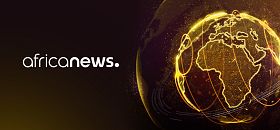


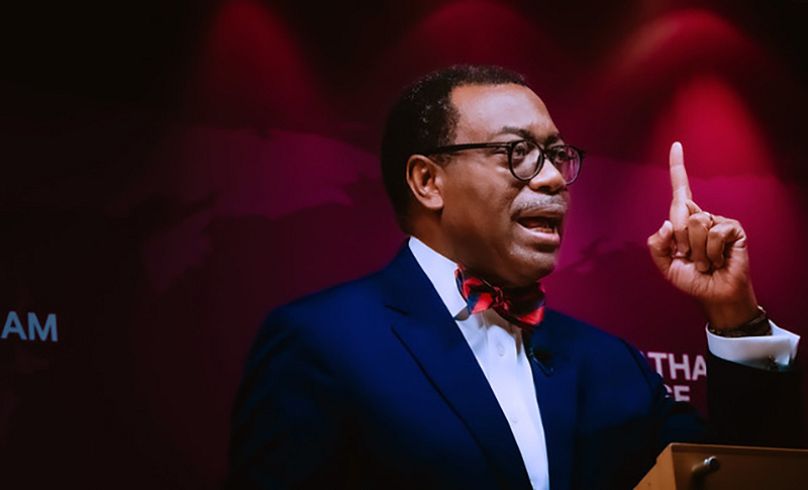
![Kenya: What are the consequences of the withdrawal of the finance bill? [Business Africa]](https://static.euronews.com/articles/stories/08/52/93/78/320x180_cmsv2_9514b4a4-b3b2-5c0a-a5b2-b0551c45909c-8529378.jpg)
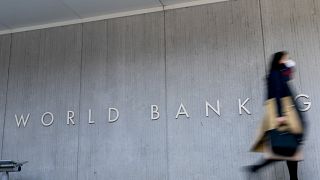
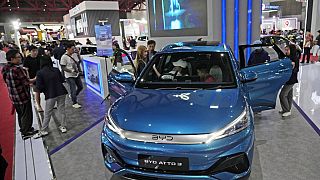
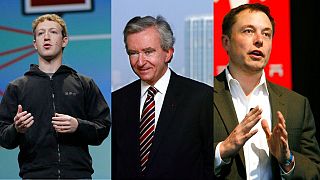
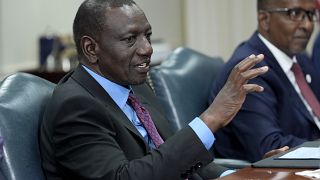
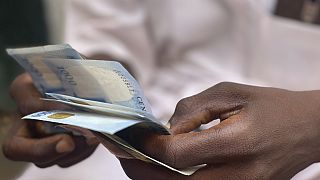
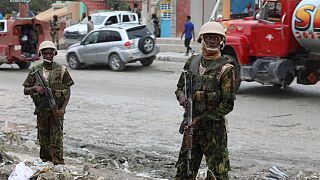
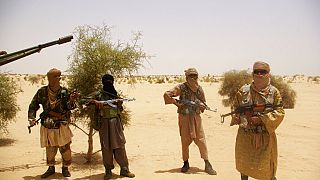
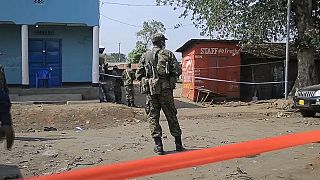
02:20
Designer Imane Ayissi looked East for his latest show in Paris
01:57
Russian Ambassador Nebenzya warns against providing arms for Ukraine
01:00
WATCH: Protests persist in Nairobi despite president's concessions
02:23
Sisters make colourful hospital gowns for children in the US and Africa
00:52
“Exploitation continues in Africa, but through economic methods,” Lavrov
01:07
Niger revokes French company's operating licence at major uranium mine